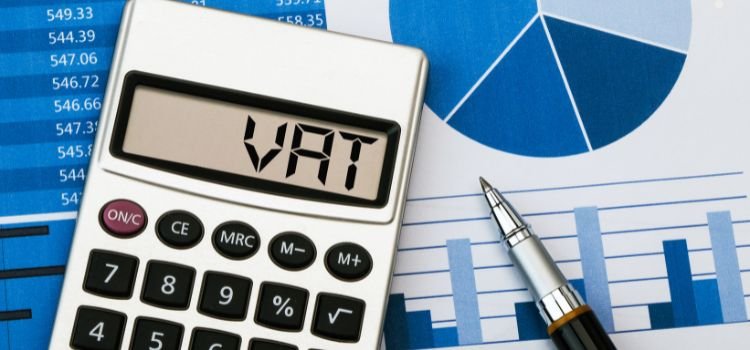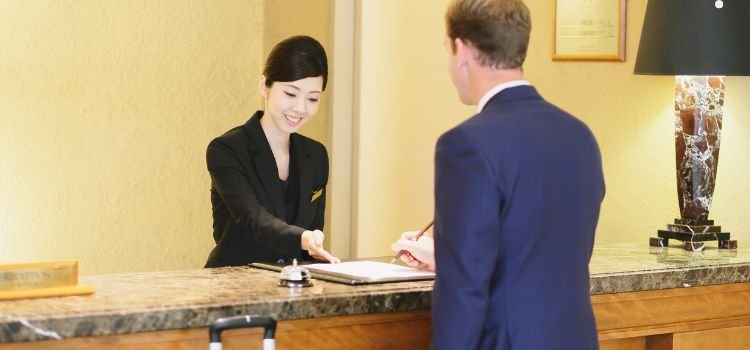Running a hospitality business? Then you’ve probably wondered at some point when exactly do I need to register for VAT, and how do I even start?
With so many different rules for food, drinks, and services, it’s no surprise it can feel overwhelming but if it’s done properly, you can stay HMRC compliant, avoid penalties, and even reclaim VAT on some of your costs.
Knowing when registration becomes mandatory and also understanding the steps involved are of the utmost importance.

When does a hospitality business need to register for VAT?
Suppose you’ve just opened a cosy café. At first, you’re serving a few regulars every morning. Then word spreads, weekends get busier, and suddenly, you’re catering for office lunches and birthday brunches.
Great news, right? But with all that growth comes something less exciting — VAT.
So when exactly do you need to register?
In the UK, once your turnover hits £90,000 in a 12-month rolling period (as of 2024/25), HMRC expects you to sign up. The catch is that this isn’t a tax year, it’s any 12 months. Meaning, if your café hits the threshold this October (not just April–April), you still need to register.
In the hospitality sector, “taxable turnover” includes things like:
- Meals, drinks, and snacks (including dine-in and takeaway)
- Room bookings in hotels or guesthouses
- Catering services for events
- Certain delivery or service charges
Now, here’s a question many new owners ask: “What if I’m not at the threshold yet?” You can actually register voluntarily. Some restaurants and hotels do this to reclaim VAT on things like kitchen equipment, refurbishments, or supplies. Plus, it can make your business look more established to customers and suppliers.
You can check the current VAT threshold straight from HMRC here.
Decide on the Right VAT Scheme for Your Hospitality Business
HMRC offers several VAT accounting schemes, but hospitality businesses often benefit from industry-specific schemes to simplify things.
Here are some common options:
- Standard VAT Accounting: The default method. You charge VAT on your sales, reclaim VAT on purchases, and submit quarterly returns.
- Flat Rate Scheme (FRS): Perfect for small businesses with turnover under £150,000 (excluding VAT). You pay a fixed % of your turnover as VAT for restaurants; it’s usually around 12.5%, and 10.5% for hotels, simplifying calculations.
- Cash Accounting Scheme: You only pay VAT when your customer pays you (rather than when you invoice them). Helpful if you have long payment terms or late-paying clients.
- Retail Scheme: If you sell a mix of standard-rated and zero-rated items (like food and drink), this scheme simplifies how you calculate the VAT portion of your total sales.

Documents and information you’ll need for VAT registration
When it comes to VAT registration, HMRC isn’t asking for anything outrageous but they do expect the details to be accurate.
Having everything ready beforehand can save you a lot of back-and-forth.
Here’s what you’ll typically need:
- Your business details: trading name, business address, contact information, and bank account details.
- Government Gateway account: this is your login for HMRC’s online services. If you don’t already have one, you can create it during the registration process.
- Turnover figures: HMRC wants to know when you passed (or expect to pass) the VAT threshold. Keep sales records handy, especially if you run a restaurant, bar, or hotel where daily transactions can add up quickly.
- Business activities: they’ll ask what kind of services you provide. For example, restaurant meals, catering, accommodation, or events.
- National Insurance number and ID details if you’re a sole trader, or company registration details if you’re running a limited company.
A lot of hospitality owners overlook one small but important thing: accurate record keeping. If HMRC spots inconsistencies between your VAT registration form and your bookkeeping, it can delay your application.
For example, if your restaurant crossed the threshold in April but you accidentally reported June, HMRC may come back with questions.
Think of VAT registration as filling in the “story” of your business and HMRC just wants the facts to line up.
Preparing these documents in advance means you can complete the online form in one smooth sitting rather than scrambling for details halfway through.
Steps to register your restaurant, hotel, or café for VAT:
Now that you’re prepared, it’s time to register.
You can register for VAT:
- Online via HMRC: Register for VAT
- Or by post using VAT1 form (for some complex cases like setting up a VAT group or joint venture)
HMRC typically takes up to 30 working days to process your registration. Once approved, you’ll receive:
- Your VAT registration number
- Your effective date of registration
- Your VAT online account login (Government Gateway)
This is also when Making Tax Digital (MTD) kicks in, you’ll need to keep digital records and submit VAT returns using MTD-compliant software.
Start Charging and Reporting VAT Correctly
Once registered, you must:
- Charge VAT at the correct rate (20%, 5%, or 0% depending on the item/service)
- Display VAT-inclusive prices clearly to customers (especially on menus)
- Issue VAT invoices to business customers
- File VAT returns on time usually every quarter
- Pay HMRC by the deadline (or arrange for repayment if you’re due one)
Important for hospitality businesses: Some food and drink items are zero-rated, while others are standard-rated. For example:
- Cold takeaway sandwiches = 0% VAT
- Hot takeaway pizza = 20% VAT
- Bottled water = 20% VAT
- Hotel accommodation = 20% VAT
The rules can be tricky. That’s why you need to make sure you work with an accountant that knows their way around VAT for the hospitality industry.
Common mistakes hospitality businesses make with VAT
VAT in hospitality is full of little traps, and even experienced business owners can slip up.
HMRC doesn’t usually let mistakes slide. These can lead to penalties or unexpected bills. Some common mistakes include:
1. Missing the registration deadline
It’s easy to lose track when you’re focused on running a busy restaurant or hotel. But if your turnover passes the threshold and you don’t register within 30 days, HMRC can backdate your registration and charge penalties.

2. Mixing up VAT rates
Hospitality isn’t always at the standard 20% rate. Some items (like hot takeaway food) are charged differently than cold takeaway or alcohol. If you’re not careful, you could be charging the wrong amount. HMRC explains the different rates here.
3. Not keeping proper records
Receipts, invoices, and digital records matter more than many realise. If HMRC asks for evidence and you don’t have it, you risk fines or losing out on VAT reclaims. Using accounting software that connects with Making Tax Digital for VAT can help.
4. Forgetting voluntary registration benefits
Some owners wait until they hit £90,000 before registering. But registering earlier can sometimes work in your favour, especially if you’re refurbishing or investing in equipment, since you can reclaim VAT on those expenses.
Avoiding these pitfalls can save you money, stress, and a lot of paperwork.
Conclusion
Miss a deadline or get the details wrong, and problems can quickly pile up. That’s why it pays to take VAT seriously from the start and seek advice when needed.
By staying organised and proactive, VAT won’t feel like a constant headache but a part of your business that you’ve got under control.
If you want to learn more about taxes in the hospitality industry, check this out.
Hope you found this insightful. Thanks for reading!

Meet Mo
Mo is experienced in dealing with clients from start-ups and expanding businesses for UK property investors in the retail and hospitality sector. He also brings his extensive experience in setting up and managing hotels, cafes, restaurants and rental properties across the UK to help clients achieve their business goals and succeed.
He regularly shares his knowledge and best advice here on his blog and on other channels such as LinkedIn.
Book a call today to learn more about what Mo and Monarc Finance can do for you.

